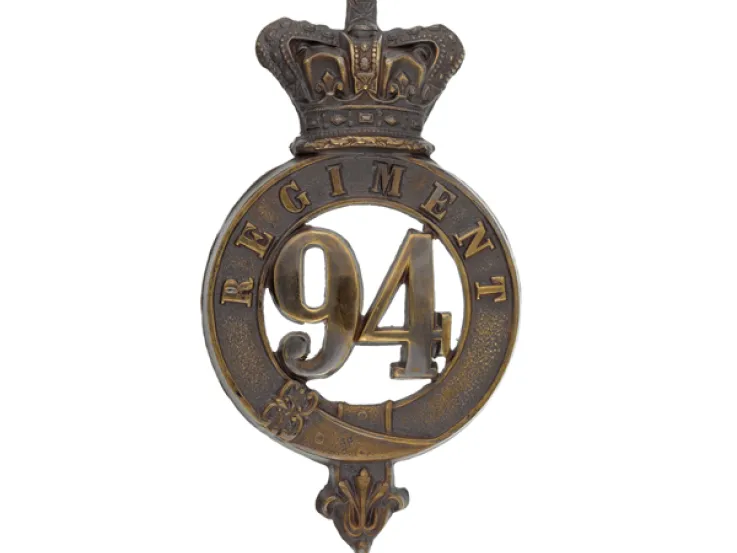Explore more from Regiments and Corps
91st (Princess Louise’s Argyllshire Highlanders) Regiment of Foot
3 minute read
Origins
Despite lasting as an independent unit for less than 90 years, this regiment had an eventful life. It was raised by Duncan Campbell of Lochnell in western Scotland on behalf of the Duke of Argyll in 1794, during the opening stages of the French Revolutionary Wars (1793-1802).
Initially numbered the 98th (Argyllshire Highlanders) Regiment of Foot, it rose to 91st two years later. By this time, it had been sent to help capture and garrison Cape Town in South Africa.
19th century
The unit's next postings were back in Europe. It served at Hanover (1805), before embarking for the Peninsular War (1808-14), fighting at Rolica (1808) and Corunna (1809), from where it was evacuated.
Later in 1809, it took part in the Walcheren Expedition in Holland. It then returned to the Peninsula in 1812, serving at Vitoria (1813), Nivelle (1813), Orthes (1814) and Toulouse (1814).
Although stationed in Belgium in 1815, it was not engaged at Waterloo. Instead, the unit was based at Halle, guarding the right flank of Wellington's army. It did, however, help capture the fortress town of Cambrai.
The regiment had formed a 2nd Battalion in 1804. This embarked for Germany in July 1813 and took part in the unsuccessful attack on Bergen op Zoom (1814), before returning home and being disbanded at Perth in December 1815.
It spent the post-war period garrisoning England and the West Indies. A detachment of the regiment escorted Napoleon’s body on its return to France from St Helena in 1840. Service in the Seventh Cape Frontier War (1846-47) followed, before its return to England.
Final deployments
During the 1850s, the 91st spent time garrisoning Ireland, Malta, the Ionian Islands and Egypt. Then, in 1858, it was sent to help suppress the Indian Mutiny (1857-59), remaining on the subcontinent until 1868.
It served as the honour guard at the wedding of Princess Louise (Queen Victoria’s daughter) to Douglas Sutherland Campbell (later Duke of Argyll) at Windsor Castle in 1871. A year later, it was allowed to incorporate her name into its own title.
The regiment returned to South Africa to participate in the Zulu War (1879), fighting at Gingindlovu and Eshowe in April 1879.
Legacy
In 1881, it amalgamated with the 93rd (Sutherland Highlanders) Regiment of Foot to form Princess Louise’s (Argyll and Sutherland) Highlanders.
Regimental museums
The National Army Museum works with a network of Regimental and Corps Museums across the UK to help preserve and share the history and traditions of the Army and its soldiers.
Discover more about the 91st (Princess Louise’s Argyllshire Highlanders) Regiment of Foot by visiting the Argyll and Sutherland Highlander Regimental Museum at Stirling Castle.











